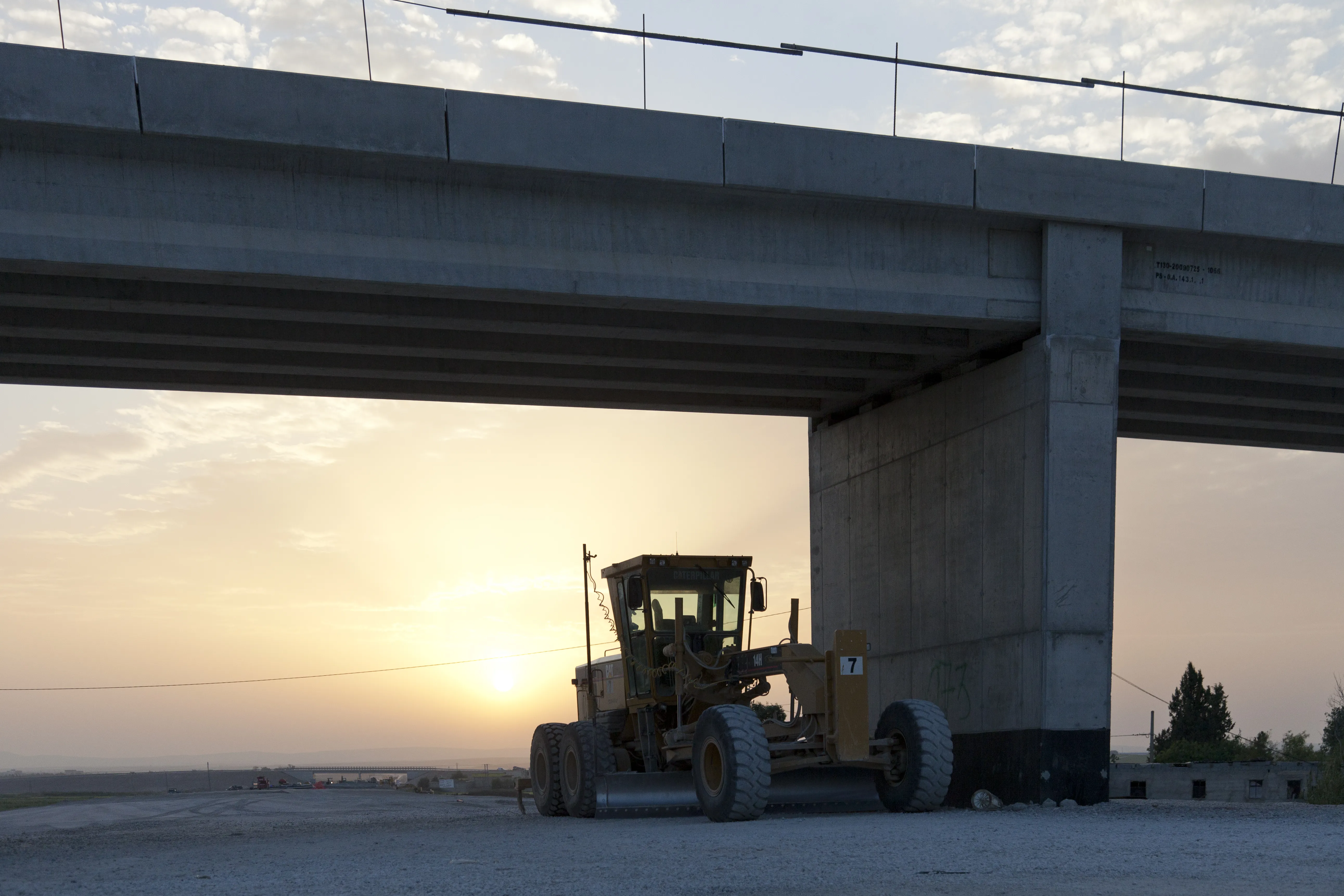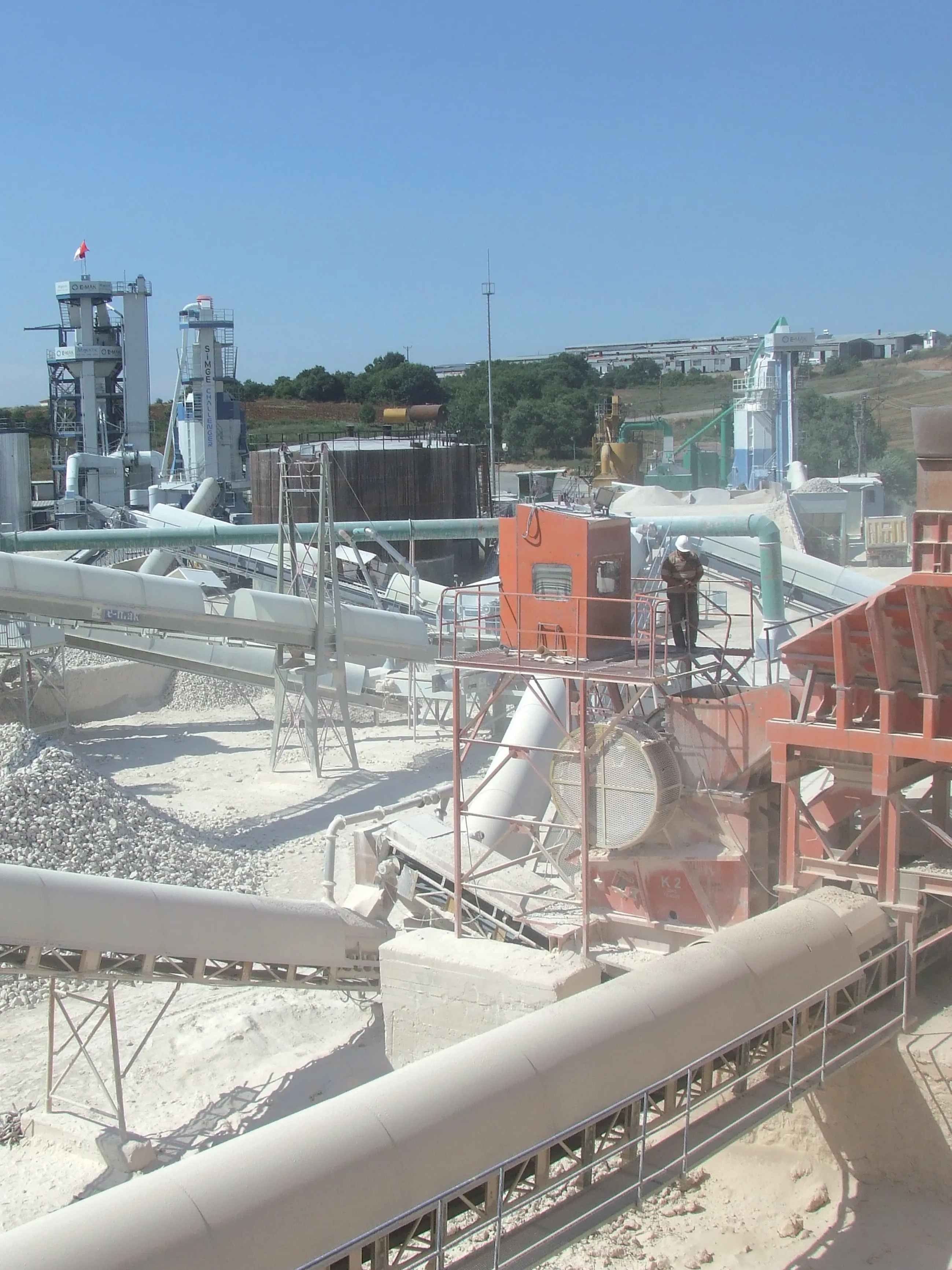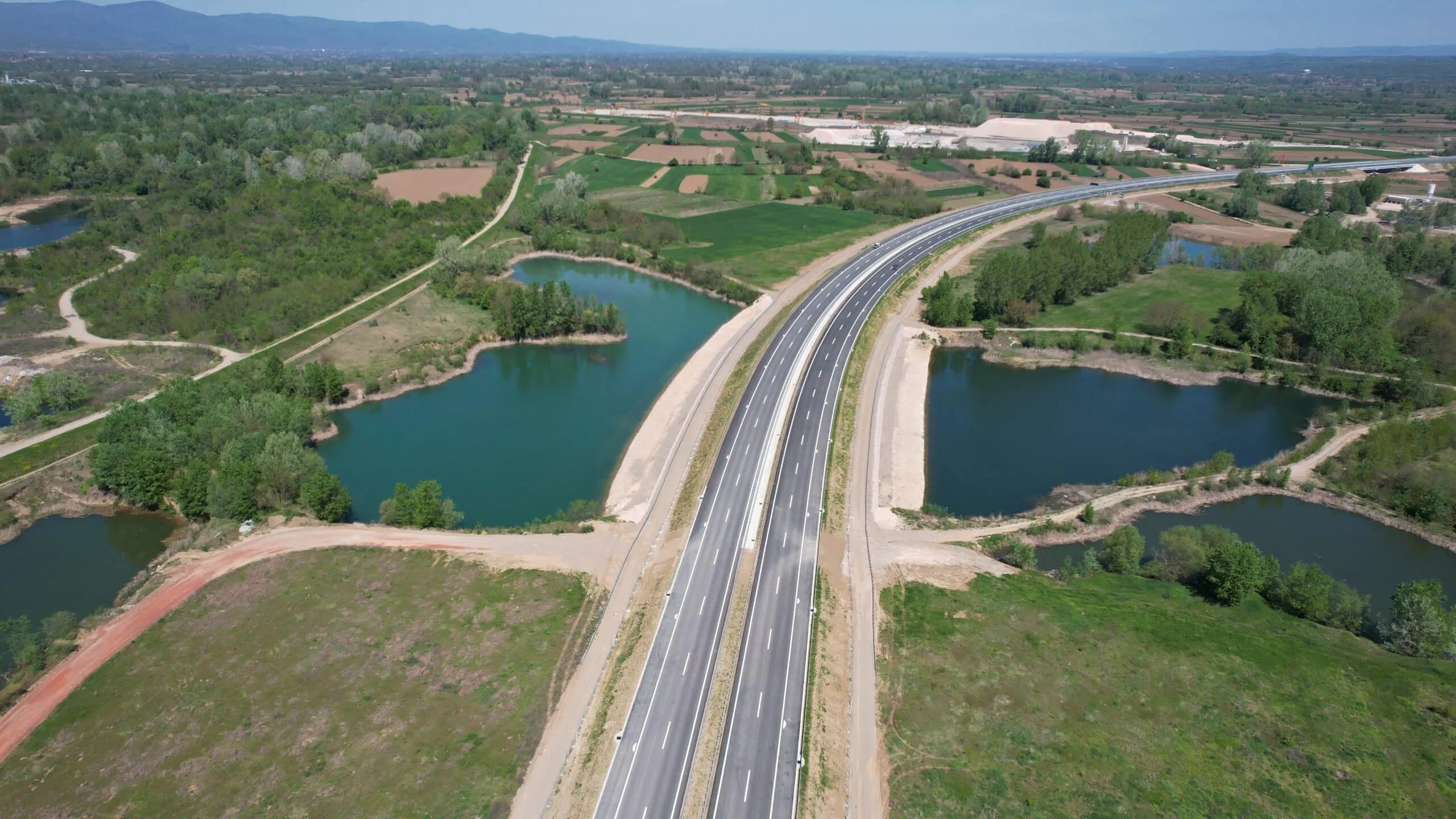Highway construction work is transforming Algeria, providing the country with a new network of highway quality road connections.
February 9, 2012
Read time: 3 mins

Highway construction work is transforming Algeria, providing the country with a new network of highway quality road connections. Several sections of the new trans-Algerian highway are already complete and carrying traffic, such as the stretch near the town of Setif. When complete the highway will run 1,200km across the north of the country from the border with Morocco in the west to the Tunisian border, passing through 24 provinces. This makes it the biggest highway project ever undertaken in Africa, as well as a landmark infrastructure investment for Algeria. In a country of nearly 36 million people and where 85-90% of vehicle traffic involves the movement of goods, this new highway will have a major impact on the country's previous congestion problems.
COJAAL (COnsortium JAponais Pour l'Autoroute ALgerienne) is building the highway's eastern section. This is a 399km stretch running from Bordj-bou-Arreridj to the Tunisian border. Besides dealing with some of the most difficult terrain along the whole length of the route, the work involves earthworks running to around 110,611,000 m3 and placement of 1,925,000m3 of concrete.178 Caterpillar machines are playing an important role, having been supplied by dealer 2154 Bergerat Monnoyeur.
The work is split between seven site offices, or work camps, each responsible for building sections varying between 9km and 124km. COJAAL is running a fleet of some 300 Cat machines along the route. Most were part of the firm's existing fleet, shipped from Japan, but at the start of the project the company bought another 68 units. The Cat machines are working along the highway and at COJAAL-operated quarries. Graders are employed in both initial site clearing and finish grading, while wheel loaders and highway trucks operate in both locations. Some of the Cat trucks have been modified to carry a sophisticated water system to cut down the dust on the haul roads and parts supply has been ensured through a warehouse set up by BM Algeria and parts in constant demand include filters, ground engaging tools and tracks.
Set up in 1981 as an offshore-only Caterpillar dealer, Bergerat Monnoyeur Algeria now caters for customers from all over the world. From 120 in 2007, the number of staff has now grown to 230, with a significant part of that increase driven by the demands of the highway project. In 2009 the company opened an office in Setif to support COJAAL. In the project's first year, some COJAAL Cat machines clocked up 4,000 operating hours and many have now recorded over 10,000. As a result the firm's facility in Algiers can service the machines to the highest standards, using the latest scheduled oil sampling techniques for example.
Algeria's highway construction programme has come as the country's economy has started to grow. Each year since 2002 has seen an increase of around 30% in the country's business activity. And with a budget of $15 billion dollars earmarked by the Algerian government for expanding the country's transport infrastructure over the coming five years, activity is set to continue.
COJAAL (COnsortium JAponais Pour l'Autoroute ALgerienne) is building the highway's eastern section. This is a 399km stretch running from Bordj-bou-Arreridj to the Tunisian border. Besides dealing with some of the most difficult terrain along the whole length of the route, the work involves earthworks running to around 110,611,000 m3 and placement of 1,925,000m3 of concrete.
The work is split between seven site offices, or work camps, each responsible for building sections varying between 9km and 124km. COJAAL is running a fleet of some 300 Cat machines along the route. Most were part of the firm's existing fleet, shipped from Japan, but at the start of the project the company bought another 68 units. The Cat machines are working along the highway and at COJAAL-operated quarries. Graders are employed in both initial site clearing and finish grading, while wheel loaders and highway trucks operate in both locations. Some of the Cat trucks have been modified to carry a sophisticated water system to cut down the dust on the haul roads and parts supply has been ensured through a warehouse set up by BM Algeria and parts in constant demand include filters, ground engaging tools and tracks.
Set up in 1981 as an offshore-only Caterpillar dealer, Bergerat Monnoyeur Algeria now caters for customers from all over the world. From 120 in 2007, the number of staff has now grown to 230, with a significant part of that increase driven by the demands of the highway project. In 2009 the company opened an office in Setif to support COJAAL. In the project's first year, some COJAAL Cat machines clocked up 4,000 operating hours and many have now recorded over 10,000. As a result the firm's facility in Algiers can service the machines to the highest standards, using the latest scheduled oil sampling techniques for example.
Algeria's highway construction programme has come as the country's economy has started to grow. Each year since 2002 has seen an increase of around 30% in the country's business activity. And with a budget of $15 billion dollars earmarked by the Algerian government for expanding the country's transport infrastructure over the coming five years, activity is set to continue.








